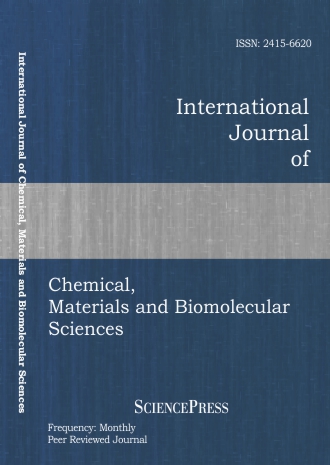
Scholarly
Volume:3, Issue: 8, 2009 Page No: 416 - 422
International Journal of Chemical, Materials and Biomolecular Sciences
ISSN: 2415-6620
Phase Behaviors and Fuel Properties of Bio-Oil-Diesel-Alcohol Blends
Attempt was made to improve certain characteristics of bio-oil derived from palm kernel pyrolysis by blending it with diesel fuel and alcohols. Two types of alcohol, ethanol or butanol, was used as cosolvent to stabilize the phase of ternary systems. Phase behaviors and basic fuel properties of palm kernel bio-oildiesel- alcohol systems were investigated in this study. Alcohol types showed a significant influence on the phase characteristics with palm kernel bio-oil-diesel-butanol system giving larger soluble area than that of palm kernel bio-oil-diesel-ethanol system. For fuel properties, blended fuels showed superior properties including lower values of density (~860 kg/m3 at 25°C), viscosity (~4.12 mm2/s at 40°C), carbon residue (1.02-2.53 wt%), ash (0.018-0.034 wt%) and pour point (<-25 to -7 °C), increased pH (~ 6.4) and giving reasonable heating values of 32.5-41.2 MJ/kg. To enable the prediction of some properties of fuel mixtures, the measured fuel properties including heating value, density, ash content and pH were fitted by Kay-s mixing rule, whereas the viscosities of blended fuels at different temperatures were correlated by the modified Grunberg-Nissan equation and Andrade equation.